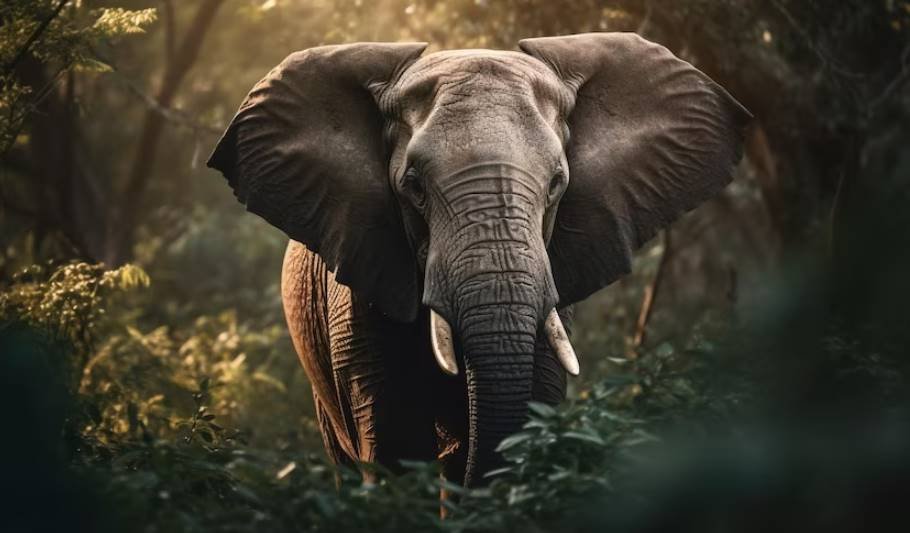As someone who has spent considerable time studying these magnificent creatures, I have been consistently amazed by the memory of an elephant. These gentle giants possess an extraordinary ability to recall information and experiences, which plays a crucial role in their survival and social interactions. Understanding the depths of an elephant’s memory can provide us with valuable insights into their world and help us better appreciate the complexity of these animals.
The question that naturally arises is, What makes the memory of an elephant so remarkable? Elephants have an exceptional ability to remember events, locations, and even other individuals over long periods, thanks to their highly developed hippocampus, the part of the brain responsible for memory and spatial awareness.
This advanced memory system allows elephants to navigate vast distances, maintain complex social structures, and even experience emotions such as grief and joy. By exploring the fascinating aspects of elephant memory, you’ll gain a deeper understanding of these incredible animals and the potential applications of this knowledge in various fields. So, let’s dive in and uncover the secrets of the memory of an elephant.
What Makes Elephants’ Memory So Exceptional?
One of the factors contributing to the extraordinary memory of elephants is their brain structure. Elephants have one of the largest brains among land animals, weighing up to 5 kg (11 lbs).

The hippocampus, which plays a significant role in memory formation and retrieval, is particularly well-developed in elephants, providing them with the ability to store and process an impressive amount of information. Furthermore, their brains have a high number of neurons, enabling complex thinking and problem-solving skills that complement their memory abilities.
Recent research has revealed astounding facts about the memory capacity of elephants. A study conducted by researchers at the University of Sussex found that African elephants could remember the location of up to 30 distinct family members, even after being separated for many years.
Another study published in the journal Animal Behaviour demonstrated that elephants can recognize the calls of at least 100 different individuals, showcasing their remarkable ability to recall auditory information. These findings not only highlight the exceptional memory of elephants but also emphasize the critical role it plays in their survival and social dynamics.
The Role of Elephant Memory in Social Structures
Elephants are known for their complex social structures, which rely heavily on their exceptional memory abilities. These social structures play a critical role in their survival and well-being, as they facilitate cooperation, communication, and knowledge transfer among group members. In this section, we will explore how the memory of an elephant contributes to the establishment and maintenance of these intricate social systems.
In elephant societies, family units are typically composed of related females and their offspring, led by an experienced matriarch. The matriarch is responsible for guiding her family, making decisions, and sharing her extensive knowledge with younger generations.
Elephants can recognize and remember other individuals within their own family units and even those from distant groups, enabling them to navigate the complexities of their social world with ease. This ability to recall relationships with specific individuals is essential for maintaining social cohesion and avoiding conflicts.
Elephants also use their memory to learn from the experiences of others, allowing them to adapt to changing environments and make better decisions. For example, older elephants often have a wealth of knowledge about water sources, food availability, and potential dangers, which they can pass on to younger group members.
This transfer of information is crucial for the survival of elephant populations, especially in times of drought or other environmental challenges.
The remarkable memory of an elephant plays a vital role in their social structures, providing the foundation for cooperation, communication, and knowledge transfer. This extraordinary ability not only contributes to the success of individual elephants but also ensures the survival and prosperity of their entire species.
How Elephants Use Their Memory for Navigation and Migration?
Elephants are known for their impressive navigational skills, often traveling vast distances in search of food, water, and suitable habitats. Their remarkable memory plays a crucial role in this process, helping them to remember the locations of essential resources and the routes they have previously taken. In this section, we will delve into how elephants use their memory for navigation and migration, ensuring their survival in the wild.

One way elephants utilize their memory for navigation is by creating mental maps of their environment. These maps contain information about the locations of water sources, food, and safe resting areas, which they can access when needed.
The matriarch of the group, who possesses the most extensive knowledge and experience, usually leads the herd during migrations. She relies on her memory to guide her family, ensuring they reach their destination safely and efficiently.
In addition to mental mapping, elephants also use their memory to recognize landmarks and other environmental cues that help them navigate. For instance, they may associate specific trees or rock formations with certain routes or resource locations. This ability to remember and interpret their surroundings enables them to adapt to changes in the environment and make informed decisions about where to travel next.
Overall, the memory of an elephant plays a vital role in their ability to navigate and migrate across vast distances. By remembering the locations of essential resources and utilizing environmental cues, elephants can successfully traverse their complex and ever-changing habitats, ensuring their survival and well-being in the wild.
The Emotional Depth of Elephants: Grief, Joy, and Memory
Elephants are not only known for their exceptional memory but also for their capacity to experience a wide range of emotions, including grief, joy, and empathy. Their emotional depth is closely linked to their memory, as they can recall past events and form strong bonds with other elephants. In this section, we will explore how the memory of an elephant contributes to their emotional experiences and social interactions.
The ability of elephants to remember individual relationships allows them to form lasting bonds with their family members and even other elephants outside their immediate social group.
This emotional connection is evident in the way elephants greet each other after long periods of separation, often touching their trunks and engaging in a variety of vocalizations. Moreover, elephants have been observed displaying empathy toward injured or distressed members of their group, offering assistance and comfort in times of need.
Another fascinating aspect of elephant emotion and memory is their response to deceased individuals. Elephants have been documented showing signs of grief when encountering the remains of a deceased elephant, often touching the bones with their trunks and standing silently around the carcass.
This behavior suggests a deep emotional connection to the deceased and an understanding of mortality. Some researchers believe that the memory of an elephant plays a crucial role in these expressions of grief, as they may be able to recognize the deceased individual and recall shared experiences.
The emotional depth of elephants is intricately connected to their remarkable memory abilities. By remembering past events, relationships, and experiences, elephants are capable of forming strong emotional bonds and displaying complex emotions such as grief, joy, and empathy. This further demonstrates the incredible cognitive abilities of these gentle giants and adds another layer of complexity to our understanding of their behavior and social dynamics.
Practical Applications of Elephant Memory Research
Elephant memory research has provided valuable insights into the cognitive abilities of these magnificent creatures. This knowledge not only enhances our understanding of elephant behavior and ecology but also has practical applications in various fields, from conservation efforts to neuroscience and artificial intelligence.
In the field of conservation, understanding elephant memory can help design more effective strategies for protecting and managing elephant populations. For example, by recognizing the importance of the matriarch’s knowledge and leadership, conservationists can prioritize the protection of older females in the population.
Understanding how elephants use their memory to navigate and locate resources can inform habitat management plans and the creation of wildlife corridors, ensuring that elephants have access to the essential resources they need to survive.
Elephant memory research also has implications for the study of human memory and cognition. By examining the similarities and differences between elephant and human memory systems, researchers can gain a better understanding of the underlying neural mechanisms and processes involved in memory formation and retrieval.
This knowledge can potentially lead to the development of new treatments for memory-related disorders, such as Alzheimer’s disease and dementia.
Finally, the study of elephant memory can provide inspiration for the development of artificial intelligence (AI) systems. By analyzing the ways in which elephants process and store information, engineers and computer scientists can potentially develop AI algorithms that mimic these natural processes, leading to more efficient and sophisticated AI systems capable of complex problem-solving and decision-making.
The research on the memory of an elephant has far-reaching implications across various disciplines. From conservation efforts to advances in neuroscience and artificial intelligence, the study of elephant memory holds great potential for improving our understanding of both the natural world and our own cognitive abilities.
Conclusion: To Wrap Up
In this article, we have explored the fascinating world of elephant memory, delving into its various aspects such as social structures, navigation, migration, and emotional depth. We have also discussed the practical applications of elephant memory research in fields like conservation, neuroscience, and artificial intelligence. The study of elephant memory not only enriches our understanding of these incredible creatures but also provides valuable insights that can potentially improve our own lives.
It is truly awe-inspiring to see how the memory of an elephant contributes to their survival, social cohesion, and emotional experiences. As we continue to uncover more about these gentle giants, we are reminded of the incredible complexity and beauty of the natural world, giving us hope for a deeper connection between humans and the environment, and a reason to smile about the wonders that still await discovery.




















